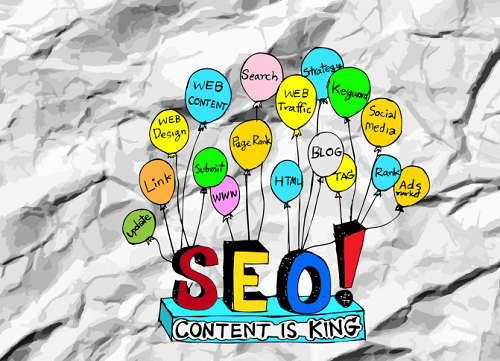How to Improve User Experience for Websites
As we have seen thus far there are tons of factors that search engines take into consideration when determining authority and ranking. One of these factors is User Experience. Like a continual life cycle, online user experience and SEO work together to make sure that people get to your website, find what they are looking for and you make a sale that the customer is satisfied with.
According to author Eckhart Tolle, the wisdom of the world, in this case, the digital world, is the movement of thought and the meaning is defined exclusively by thought. Therefore, it is imperative to think for your users and as a user. In this post, we aim to explain User Experience and how it can affect your SEO results; through Google User Experience research.

User Experience Definition?
What is User Experience? User Expereince otherwise known as UX; is the overall experience of a person using a product; paying particular attention to how easy or pleasing it is to use.
User Experience Elements
When looking at the elements of UX, the following questions arise:
- How easy is your site to navigate?
- Do you have quality content that makes visitors want to stay and engage?
- Is your site secure, fast and mobile friendly?
UX looks at all elements already discussed. There are already common elements that we work with every day. These include:
- Web design
- Layout
- Structure
- Landing pages
All of the above UX elements can be optimised to improve site usability and help reduce your bounce rate! For example, a cumbersome layout can be difficult to navigate and frustrate your user. You should ensure that your site does not contain several pop-ups and your mobile view doesn’t feature drop-down menus that obstruct key information or a call to action.
The design element of UX is extensive; however, we will be focusing our attention on content and user experience.
Improve User Experience – Optimise CTA
Call to actions should never be overlooked as it directly impacts your conversion rate. Google user experience research shows that the CTA is by far the most effective and direct way to prompt your user to take action…download, sign up, read more, play, drop it like it’s hot, make it rain…essentially, it’s what you want your users to do!
User Experience Benefits
Content is King…only when it serves your user Create engaging and unique content that allows you to compete but also sets you apart from competitors. Creating quality content on your site is aligned with your users’ needs will help boost your rankings.

User Experience Analysis – Head for your Headings
Headings in essays, novels, and other print publications help the writer and the reader understand what the paragraph is about. Naturally, it has the same effect on a web page, however here headings also help search engines crawl your site faster and are able to decipher quicker if your content is relevant to the search query.
Sitelinks – appearing in Google search results can help you take over more real estate or page space on the result page. Similar to featured snippets. This creates less room for your competitors and has proven to translate into more traffic and clicks for you!
According to search engine land, Google’s algorithm determines which website gets site links, it does so largely base on the structure of the site. i.e. clear and easy navigation and an elimination of a long drop down.
In conclusion, SEO and UX is a partnership, where SEO targets search engines and UX targets the visitors of your website. Together, they both share a common goal of providing users with the best experience.
SEO + UX = Success
User Experience basics discussion: do you think of your users when you are creating content, blogs? reviews? new web pages?
Does your search analytics and google analytics convey your thoughts? Have you found that users have clicked on your informative blogs?
Check out our presentation on User Experience best practices to learn more and improve your user experience. Also, please share your comments and views on optimising UX for successful SEO.


